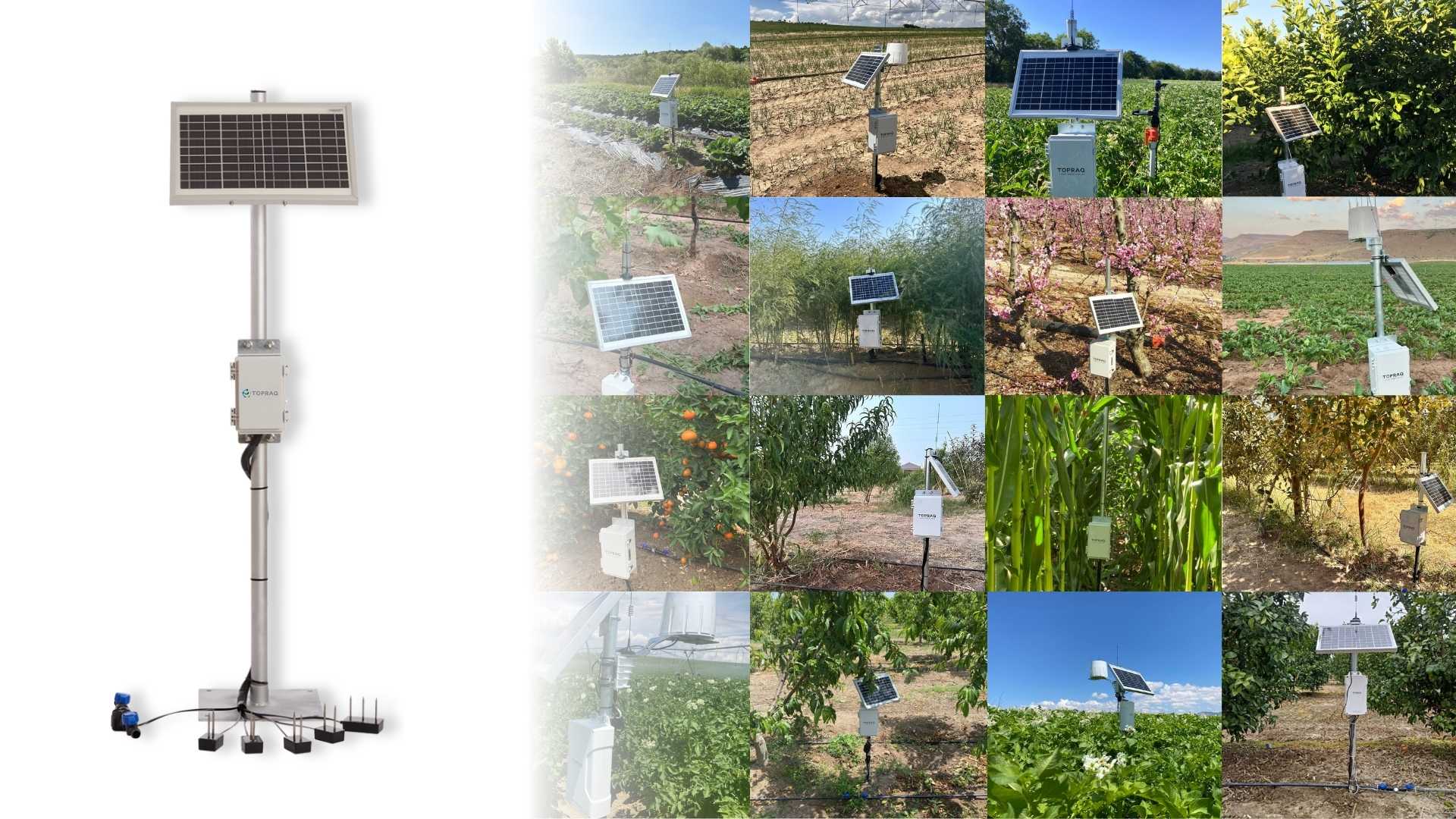Efficient water management and smart irrigation systems are critical for sustainable agricultural production. Proper use of water resources not only enhances crop yields but also protects this vital resource from waste. One of the essential smart sensors used in irrigation management is the flowmeter (also known as a water flow sensor).
At Topraq, our smart irrigation solution, T-Irrigate Monitor, utilizes flowmeter technology to enable farmers to monitor water usage during irrigation in real-time — anytime, anywhere — through a connected platform. But what exactly is a flowmeter, and how does it contribute to agricultural irrigation?
What Does a Flowmeter Do?
A flowmeter is a device that measures the volume or flow rate of liquids or gases passing through a pipe within a certain period. In agriculture, flowmeters play a crucial role in:
- Tracking water consumption during irrigation,
- Improving irrigation efficiency,
- Preventing water wastage.
Modern pressurized irrigation systems like drip irrigation, sprinkler irrigation, and pivot irrigation rely on flowmeters to ensure the right amount of water is applied at every stage of irrigation. By using flowmeters, farmers contribute to conserving water resources while guaranteeing that plants receive the exact amount of water they need.
Let’s Talk – Share Your Contact Information!
What Does a Flowmeter Measure?
Flowmeters used in agricultural irrigation provide critical data that helps farmers analyze and optimize irrigation practices. Key measurements include:
- Instantaneous Flow Rate: The volume of water passing through the irrigation line per unit of time.
- Total Volume of Water Used: The cumulative amount of water applied during a specific period.
- Pressure and Flow Variations: Detection of pressure drops or blockages in irrigation lines to quickly address system issues.
By offering real-time flow data, the T-Irrigate Monitor solution improves irrigation management, enabling data-driven decisions that increase productivity and resource efficiency.
Types of Flowmeters Used in Agriculture
Different types of flowmeters are used in agriculture based on their measurement principle and application. The most common types include:
- Mechanical Flowmeters: Contain rotating parts that move as water flows through, providing direct measurement of flow.
- Electromagnetic Flowmeters: Use electromagnetic fields to measure flow rates, especially effective for water mixed with fertilizers or chemicals.
- Ultrasonic Flowmeters: Measure flow using sound waves without requiring physical contact with the water. Ideal for pivot irrigation systems, providing precise data for pivot users.
- Differential Pressure Flowmeters: Calculate flow based on pressure differences across a constriction in the pipe.
Choosing the right flowmeter depends on water quality, irrigation system pressure, and the specific irrigation method used.

How Does a Flowmeter Work?
While flowmeter technology varies, the basic working process includes:
- Water Flow: Water passes through the irrigation pipe and the flowmeter sensor.
- Measurement: The sensor measures flow speed, pressure, or magnetic signals related to the water.
- Data Transmission: Collected data is automatically sent to cloud or automation systems.
- Monitoring & Decision Making: Farmers can access real-time data via smart platforms to monitor irrigation and optimize water use.
What to Consider When Choosing a Flowmeter for Agricultural Irrigation?
Selecting the right flowmeter sensor requires careful consideration of:
- Compatibility with Irrigation System: Ensure the flowmeter fits the irrigation type — drip, sprinkler, or pivot.
- Sensitivity and Measurement Range: High-precision sensors that can measure low flow rates accurately are preferred.
- Durability: Agricultural environments demand flowmeters resistant to dust, temperature variations, and water pressure.
- Data Integration: Choose flowmeters compatible with remote monitoring, automation, and smart irrigation platforms.
Optimize Water Management with Topraq’s T-Irrigate Monitor
Topraq’s T-Irrigate Monitor offers a smart flowmeter solution applicable to all modern pressurized irrigation systems. With features like real-time monitoring, detailed reporting, and prevention of water wastage, this solution empowers farmers to make scientifically informed irrigation decisions that maximize efficiency and sustainability.

